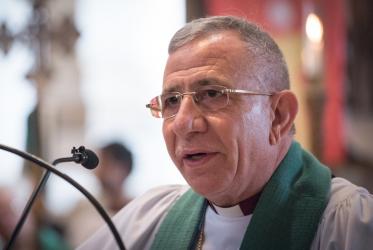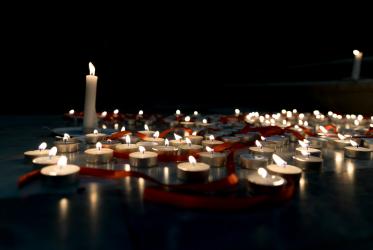Displaying 141 - 160 of 261
23 April 2017
Women’s mentoring focus of Thailand gathering
23 April 2017
Rencontre en Thaïlande sur le mentorat féminin
23 April 2017
“Overcoming economic injustice” vision of WCC’s Athena Peralta
23 February 2017
Bischof Younan erhält Niwano-Friedenspreis
22 February 2017
Bishop Younan awarded Niwano Peace Prize
22 February 2017
Conceden el Premio Niwano de la Paz al obispo Yunan
22 February 2017
L’Évêque Younan, lauréat du Prix de la paix Niwano
22 February 2017
New videos help congregations hasten HIV response
20 October 2016
Prayer and hope mark anniversary of atomic bombings
05 August 2016





